Welcome to Tapicker v5.17.8! This release introduces several powerful new features and key improvements that make workflows more flexible and easier to manage.
Highlights:
- Added Run Recipe block
- Return block now supports returning data
- Access the result of the previous block
- Access accumulated data across batches
- Auto-update column scope
- Store JSON directly in the database
- More detailed error messages when a recipe fails to start
- Removed "Favorite / Unfavorite" menu option
- Improved run log formatting
Added Run Recipe Block
You can now run one recipe inside another. This gives Tapicker workflows the ability to encapsulate tasks.
As your workflows grow more complex, you can move repeated steps into sub-recipes for efficient reuse, reducing duplication and effort.
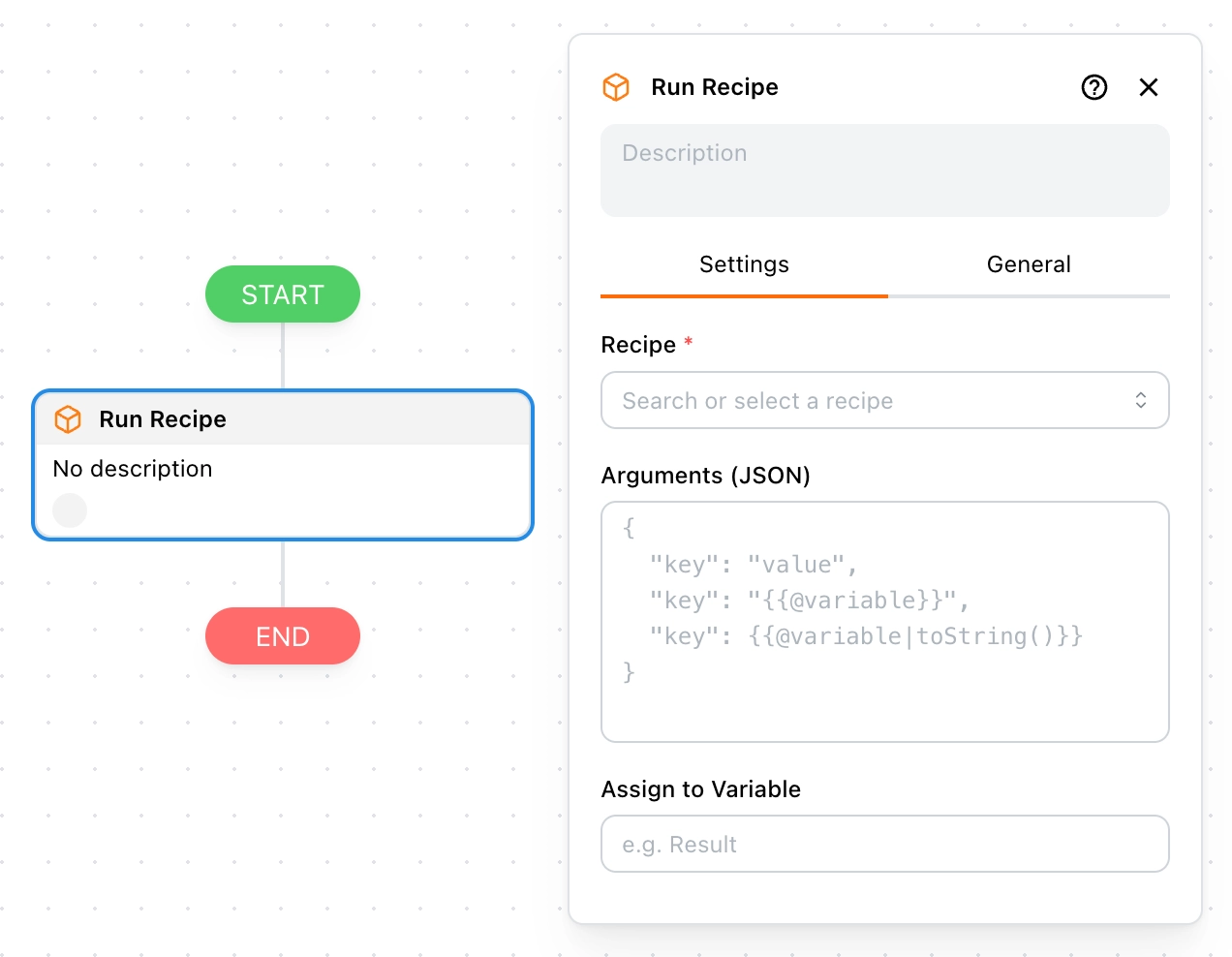
Return Block Supports Returning Data
The Return block can now pass back data, making it especially useful when combined with the Run Recipe block. This allows sub-recipes to provide results directly to the parent recipe.
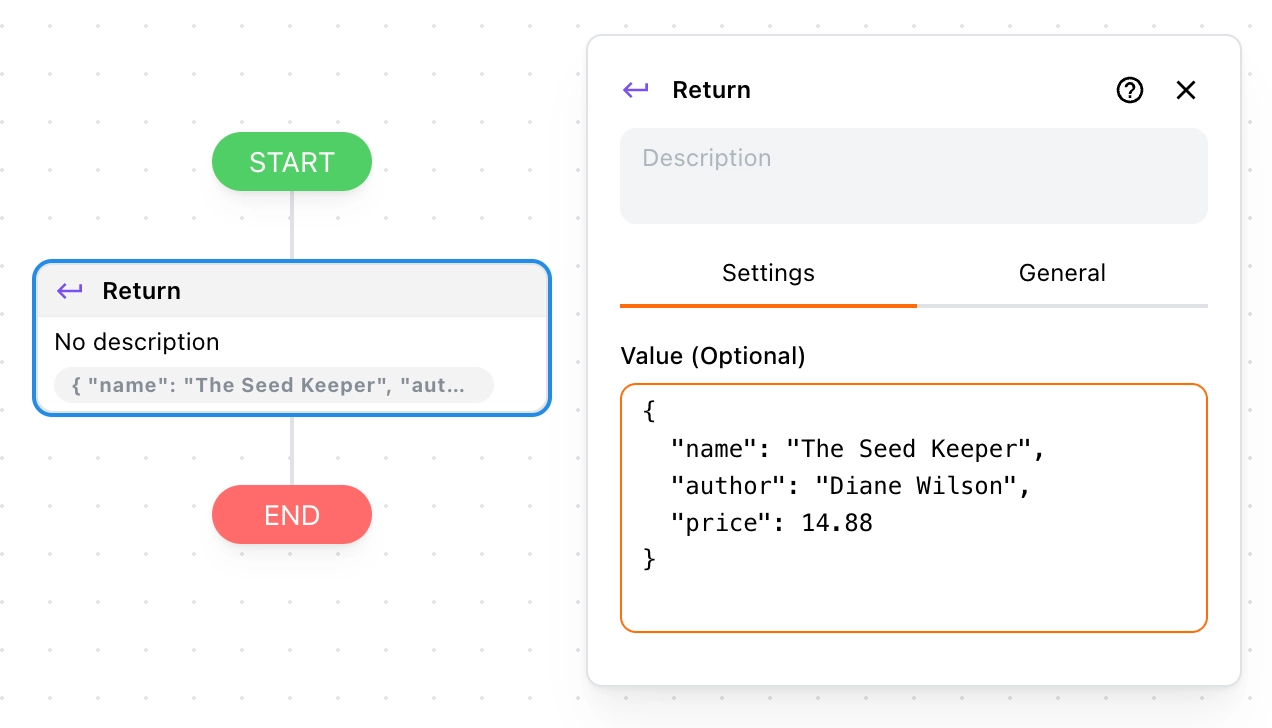
Access the Previous Block’s Result
We’ve introduced a built-in variable @vars.$prevResult that stores the result of the last executed block. This makes it much easier to branch logic based on the previous step.
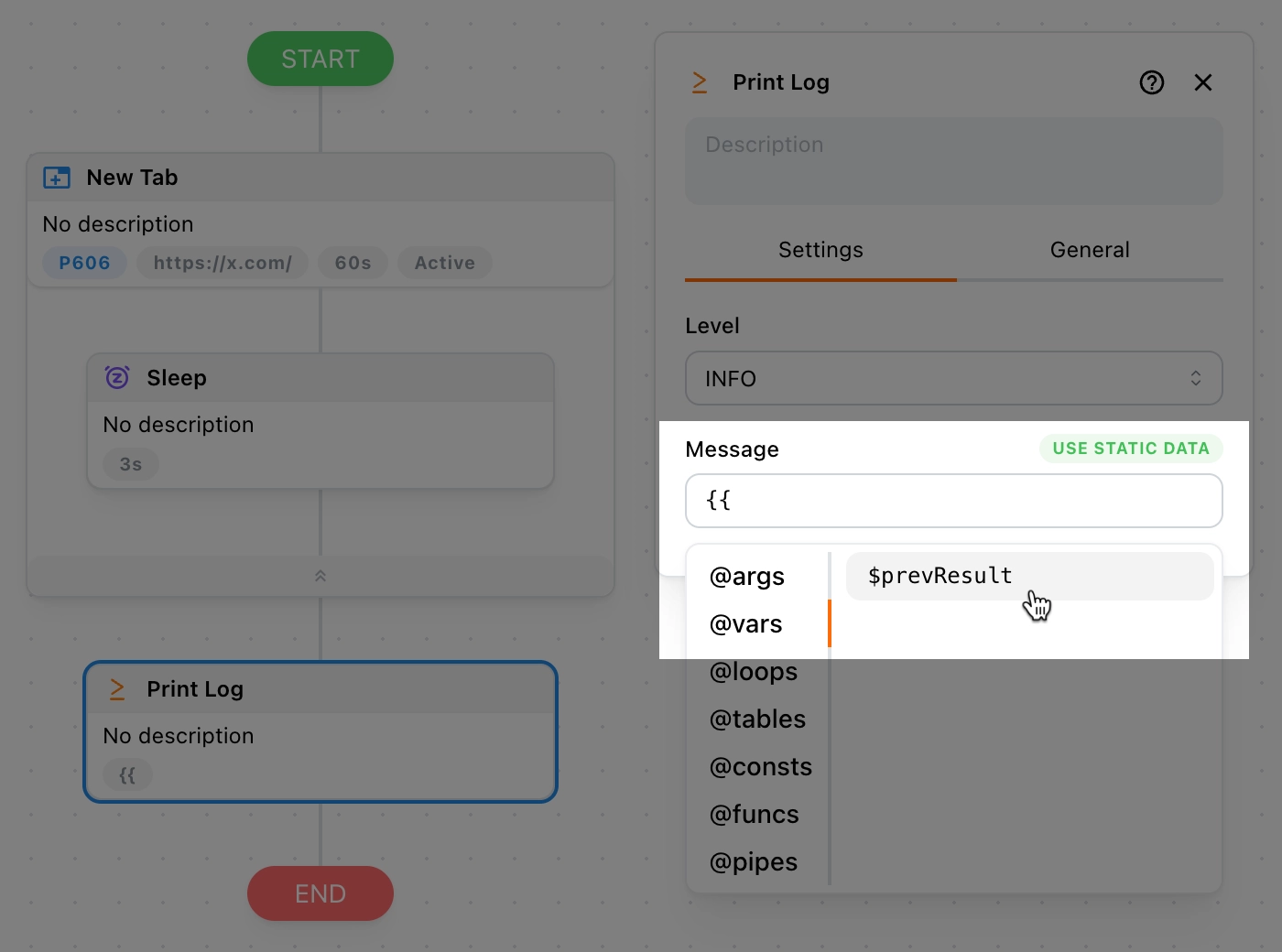
Example:
When a New Tab block fails to open a URL, you can now check {{@vars.$prevResult.status}}. If it equals error, you can log a failed attempt. This ensures your output data remains consistent—no more missing rows when errors occur.
Access Accumulated Data
You can now reference accumulated data from tables (Extract Data).
For example, if the table name is T756:
{{@tables.T756.$size}}– Rows in the current batch{{@tables.T756.$rows}}– Current batch rows{{@tables.T756.$totalSize}}(new) – Total rows accumulated so far{{@tables.T756.$totalRows}}(new) – All rows accumulated so far
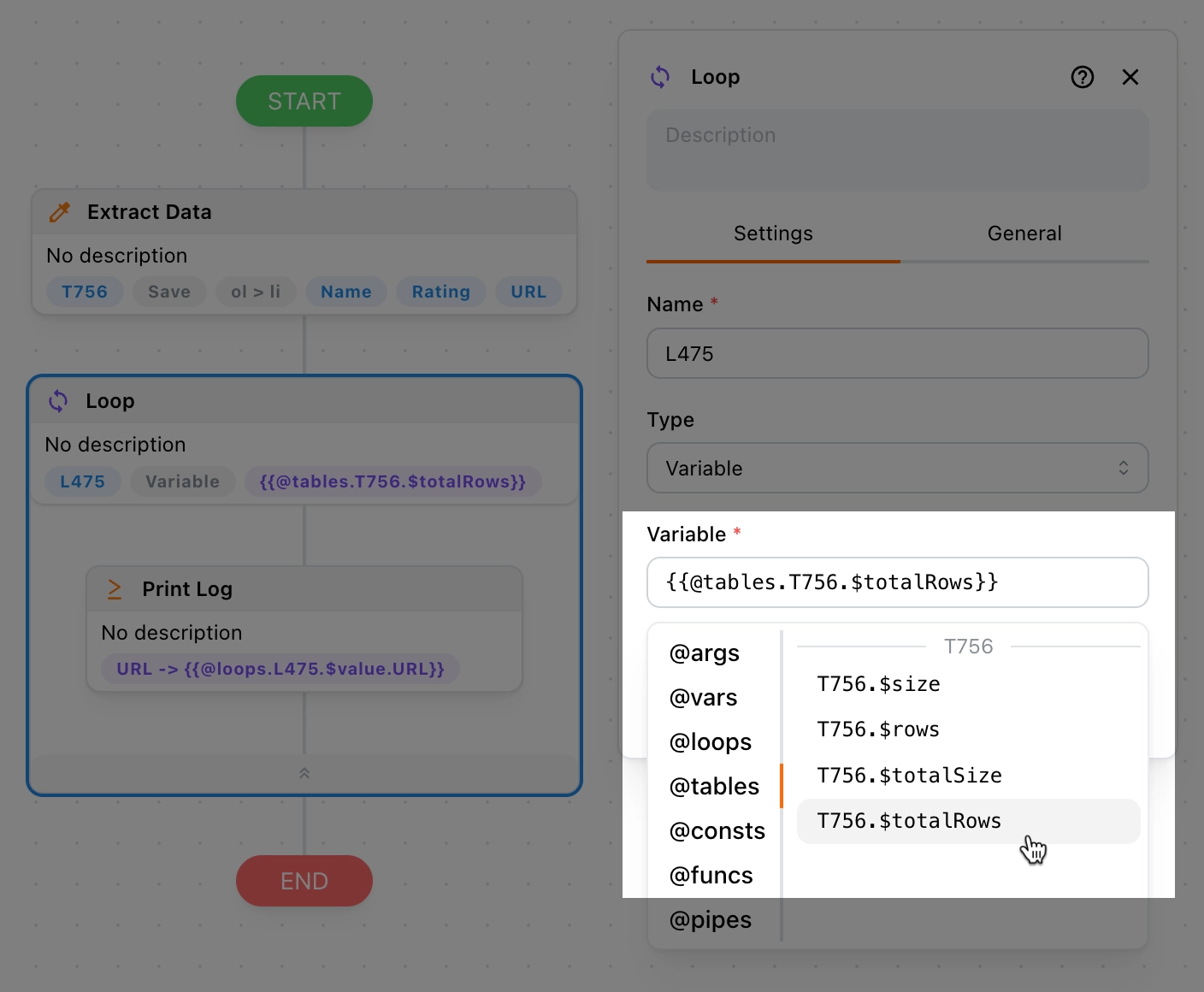
Auto-Update Column Scope
Previously, if a row’s target element changed, you had to manually update the column scope and inefficient.
Now, column scope update automatically whenever row targets change, making workflows more reliable and seamless.
Store JSON Directly in the Database
In earlier versions, only String and Number types could be stored. Now you can store JSON directly.
- When exporting to Excel, JSON values are serialized into strings.
- When exporting to JSON, they remain nested JSON structures.
- You can also directly use JSON values from your data without needing to parse them first.
More Detailed Recipe Startup Errors
Previously, if a recipe failed to start, no clear reason was provided—leaving users confused.
Now, you’ll see more detailed error messages to help identify and resolve issues quickly.
Removed "Favorite / Unfavorite" Menu
We’ve streamlined the interface by removing the "Favorite / Unfavorite" option from the dropdown menu.
Instead, simply click the star icon on the recipe card to toggle favorites.
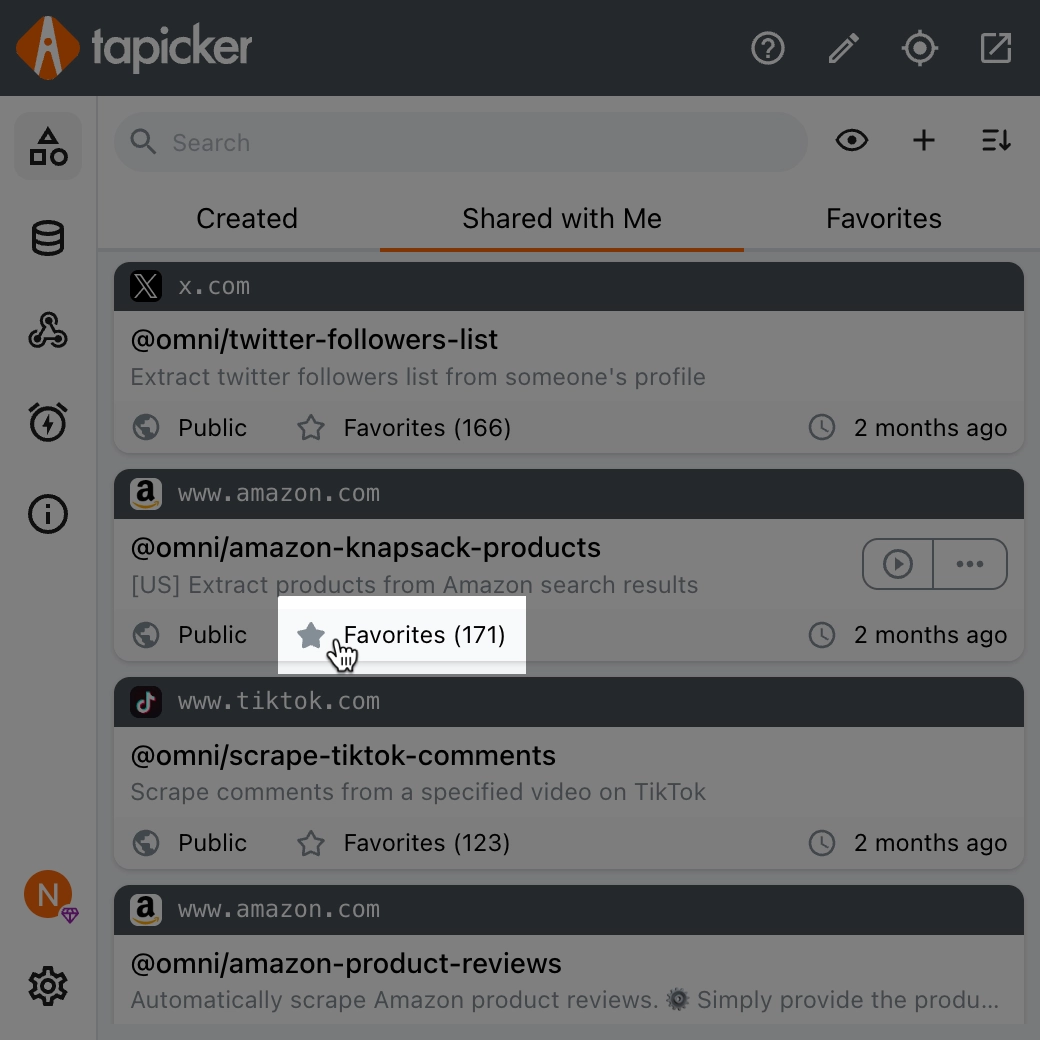
Improved Run Log Formatting
Run logs have been refined for better readability and easier debugging.
[Date] Level BlockName(BlockID) Started "Description": Config
[Date] Level BlockName(BlockID) Message
[Date] Level BlockName(BlockID) Completed "Description": Result

